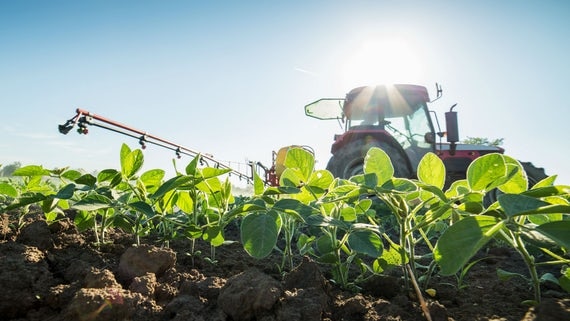Mar 5 2019
According to a research team from Cardiff University, in association with the Universities of Warwick and Liverpool and the Wellcome Trust Sanger Institute, a strain of useful bacteria could be repurposed to produce a sustainable, safe, and natural substitute to synthetic chemical pesticides.
 Image credit: Cardiff University
Image credit: Cardiff University
Discovering natural means to sustain food production and agriculture is an important universal challenge. Although synthetic chemical pesticides have conventionally been used to keep crops safe, concerns about their toxicity and the danger they cause to ecosystems are growing.
The research team used genomic techniques and found out that Burkholderia ambifaria bacteria could be used as safe and effective biopesticides.
These biopesticides provide a natural way of protection. Although the bacteria group called Burkholderia has been successfully used to save crops from diseases, in the 1990s, this was found to cause severe lung infections in people with cystic fibrosis (CF), which led to concerns about their safety and eventual removal of these biopesticides from the market.
I have been working with Burkholderia for many years, primarily in relation to CF lung infections, which in turn led to a new line of antibiotic discovery research. Working with plant scientist, Professor Jim Murray, Head of the School of Biosciences, and Doctoral Training Partnership student, Alex Mullins, we decided to take this research in a new direction, investigating Burkholderia-plant interactions and how they protect plants against disease. By sequencing the genomic DNA of the bacteria, we were able to identify Burkholderia’s antibiotic-making gene, Cepacin. Further testing demonstrated that Cepacin offered highly effective protection against damping off—a horticultural disease caused by a fungus-like organism.
Eshwar Mahenthiralingam, Professor and Project Lead Researcher, School of Biosciences, Cardiff University
Also, the researchers, with the help of genetic engineering techniques similar to those used for the preparation of live vaccines, have set out to discover new ways to improve the safety of the bacteria.
Burkholderia split their genomic DNA across 3 fragments, called replicons. We removed the smallest of these 3 replicons to create a mutant Burkholderia strain which, when tested on germinating peas, still demonstrated excellent biopesticidal properties.
Eshwar Mahenthiralingam, Professor and Project Lead Researcher, School of Biosciences, Cardiff University
Additional research revealed that this Burkholderia mutant could not endure in a mouse model with lung infection, making it possible to produce biopesticidal strains that lack the ability to cause infection but could still bring effective plant protection.
Recently, the researchers, together with Professor Greg Challis and Dr Matthew Jenner, chemists at the University of Warwick who supported in the discovery of Cepacin, received a grant award of more than £1 million from BBSRC. This will help in the advancement of future research to develop a safe and effective biopesticide that does not increase to harmful levels in the environment.
Beneficial bacteria such as Burkholderia that have co-evolved naturally with plants, have a key role to play in a sustainable future. We have to understand the risks, mitigate against them and seek a balance that works for all. Through our work, we hope to make Burkholderia viable as an effective biopesticide, with the ultimate aim of making agriculture and food production safer and more sustainable.
Eshwar Mahenthiralingam, Professor and Project Lead Researcher, School of Biosciences, Cardiff University